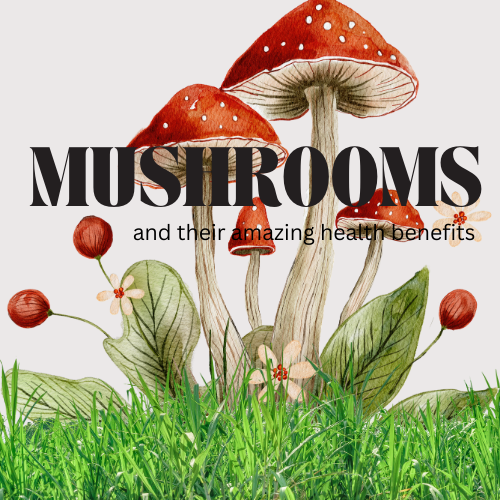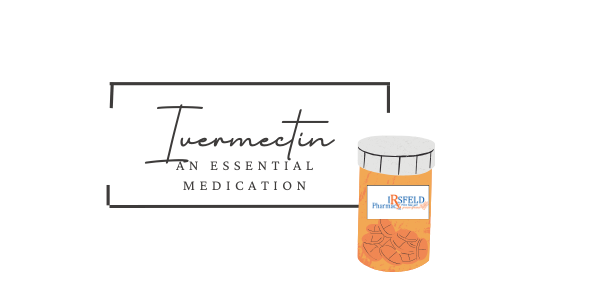They are more than a delicacy at a fancy restaurant.

Mushrooms have been a part of human culture and medicine for thousands of years. These fascinating fungi, neither plant nor animal, have captivated civilizations for their unique properties and potential health benefits. From ancient China to modern health trends, mushrooms have been vital in maintaining and improving human health. This article will explore the history of mushrooms in traditional medicine, modern scientific research, and their overall contributions to health.
Before we dive into this fun topic, I want to share a little personal history with mushrooms. When my wife and I started dating, one of the food items that was popular with her family was mushrooms. We didn't eat mushrooms at our house because my brother was an incredibly picky eater. When I would go to my wife's house for a meal, and mushrooms were a part of the meal, I would politely (I think) place them to the side of my plate and move on. I became known as the picky eater who wouldn't eat mushrooms, and occasionally that label is brought up.
Incorporating mushrooms at meal-time also came from a family that ate schmuta, plachinda, schupfnudeln, and pierogi, so I was challenged to expand my culinary horizon from many angles. Since that time, I have grown to love mushrooms and all the ethnic foods that my mother-in-law made back in the day, and I wish that she was still here with us to make these culinary delights.
The use of mushrooms in traditional medicine dates back over 4,000 years, particularly in Eastern cultures like China and Japan. Ancient Chinese medicine has long regarded certain mushrooms, such as reishi, as powerful herbs for promoting longevity, boosting the immune system, and maintaining balance in the body.
Another well-known mushroom, shiitake, originated in East Asia. It has been cultivated for over a thousand years and used not only for its flavor but also for its medicinal properties. Shiitake mushrooms were believed to enhance vitality and longevity, and recent studies have supported these beliefs, showing their benefits for the immune system and heart health.
While mushrooms have a long history in traditional medicine, they also play an increasingly important role in modern health science. Researchers are investigating the biochemical compounds in mushrooms, such as polysaccharides, terpenoids, and beta-glucans, to understand their potential health benefits.
One of the most widely researched mushrooms today is the turkey tail mushroom. This mushroom contains polysaccharopeptides, which are being studied for their immune-boosting properties. Turkey tail extracts are already used in some countries as a complementary treatment for cancer due to their ability to support the immune system during chemotherapy.
Lion's mane mushroom has recently gained attention for its potential neurological benefits. Studies have shown that compounds found in lion's mane can stimulate the production of nerve growth factor (NGF), a protein crucial for brain neurons' growth, maintenance, and survival. This has led researchers to explore its potential in treating neurodegenerative diseases like Alzheimer's and dementia.
Additionally, the use of mushrooms in treating inflammation and infection is being explored. Compounds in cordyceps have been shown to have anti-inflammatory effects, and reishi mushrooms are now being studied for their potential to lower blood pressure and improve cardiovascular health.
Beyond their medicinal properties, mushrooms are also highly nutritious. They are low in calories, fat-free, cholesterol-free, and packed with essential vitamins and minerals. Mushrooms are an excellent source of B vitamins, such as riboflavin, niacin, and pantothenic acid, essential for energy production and maintaining healthy skin and nerves. They also contain significant amounts of selenium, an antioxidant that helps protect the body's cells from damage.
One of the mushrooms' most unique qualities is their ability to produce vitamin D. When exposed to sunlight or ultraviolet (UV) light, mushrooms convert ergosterol, a compound found in their cell walls, into vitamin D2, a form of vitamin D that the body can use. This is particularly beneficial for individuals who do not get enough sun exposure or consume enough vitamin D-rich foods.
Mushrooms are also a good source of fiber and contain compounds known as beta-glucans. These compounds promote healthy digestion and may help lower cholesterol levels. Beta-glucans are also being studied for their potential to improve the body's immune response, making mushrooms a valuable addition to the diet.
In recent years, mushrooms have become a popular ingredient in the wellness world. Products such as mushroom teas, coffees, and supplements have become mainstream, with companies marketing mushrooms for their health benefits. Adaptogenic mushrooms are becoming well-known. Adaptogens are substances that help the body adapt to stress and maintain balance. Reishi, cordyceps, and chaga are examples of mushrooms classified as adaptogens.
These mushrooms are often marketed as supplements that can improve mental clarity, reduce fatigue, enhance athletic performance, and boost overall well-being. However, while mushrooms are beneficial, not all supplement companies' claims are backed by solid scientific research. Consumers should be cautious and look for products tested for purity and potency.
As research into mushrooms grows, so does our understanding of their health benefits. Scientists are discovering new compounds in mushrooms that could have potential therapeutic applications. For example, compounds in certain mushrooms are being studied for their antiviral properties, including their potential to fight influenza and other viral infections.
Additionally, mushrooms are being investigated for their role in environmental sustainability. Mycologists (scientists who study fungi) are exploring how mushrooms can be used in bioremediation, using organisms to clean up pollutants and restore ecosystems. This adds another dimension to mushrooms' health benefits—not only are they good for individual health, but they could also play a role in improving the health of our planet.
From ancient times to modern health trends, mushrooms have proven to be more than just a tasty addition to meals. Their rich history in traditional medicine and growing scientific research demonstrate their potential to support human health in various ways. Whether used for their immune-boosting properties, nutritional value, or potential to fight diseases, mushrooms are a unique and powerful tool for maintaining overall well-being. As we continue to learn more about these remarkable organisms, mushrooms will likely remain essential to health and wellness for years to come. I now like to eat mushrooms in my diet, but I also take an immune support product that also includes mushrooms. Go figure, that anti-mushroom high school kid now eating, taking in supplement form, and writing about the health benefits of mushrooms. It's a crazy world!
Stop by the pharmacy if you want more information or help choosing quality mushrooms-containing supplements. Please visit my website at www.irsfeldpharmacy.com to find this and other archived articles in the blog section.
Until next time, be vigilant about your health!!










VISIT US
HOURS
HOURS
CONTACT US
Fax #: (701) 483-4926


Share On: